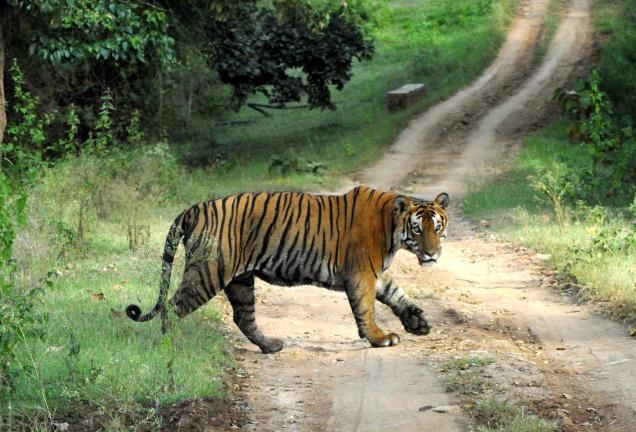MYSORE, October 3: Wildlife activists and conservationists in the State are questioning the rationale of Kerala Chief Minister Oommen Chandy’s meeting with his Karnataka counterpart on Thursday to discuss the night traffic ban through Bandipur as the issue is pending before the Supreme Court.
The two Chief Ministers will also discuss the Nanjangud-Nilambur railway line project.
Praveen Ramaswamy of Vanya Let The Wild Be Wild, an organisation working on wildlife issues, has pointed out that the issue of night traffic ban in Bandipur from 9 p.m. to 6 a.m. is being discussed for the fourth time in recent years though the State government had expressed its helplessness due to legal issues.
The closure of vehicular traffic through the two highways passing through Bandipur is based on the order of the High Court of Karnataka issued on March 9, 2010, and the matter is at present pending before the Supreme Court of India in SLP (Civil) 13838/2010, 24865 and 24866/2012, according to Vanya.
“The Karnataka government has already taken a stand for the closure of vehicular traffic at night on the two highways, based on the discussion held on June 30, 2010, under the chairmanship of Chief Secretary S.V. Ranganath, and has submitted the same to the Supreme Court. The government has also submitted to the court that solutions such as convoy systems — as proposed by Kerala was not feasible,” said Mr. Ramaswamy.
The organisation pointed out that the State government had already released Rs. 48 crore for the upgradation of the alternative road passing via Hunsur-Gonikoppa-Kutta-Kartikulam, which is only 30 km longer and can be used at night. The upgradation of the alternative road is nearly complete, he added. Similarly, the discussion on Nanjangud-Nilambur railway line project is before the National Green Tribunal, Chennai (Application No. 156/2013), said Mr. Ramaswamy.
A recent survey report conducted by the railway authorities and submitted to the Railway Board on May 24, 2013, says the proposed railway line needs an investment of Rs. 4,266.88 crore and has a negative Internal Rate of Return (IRR) of – 0.895 per cent, which makes the project highly unviable.
Activists fear that the after effects of fragmenting wildlife habitats are glaringly obvious in the number of wildlife deaths due to railway lines in Assam, West Bengal and Jharkhand, and the new railway line proposal forebodes a similar fate for wildlife in Bandipur. “It is difficult to understand how such projects that have deleterious effects on wildlife can be proposed and supported by the head of the State, especially when a reconnaissance cum traffic survey report submitted to the Railway Board has given a negative report,” said Mr. Ramaswamy.
Meanwhile, Sanjay Gubbi, a wildlife biologist and a former Member of State Board of Wildlife, said nobody is opposed to development, but there should be zoning of areas where development should take priority and areas where wildlife conservation should be accorded importance. In places like Bandipur, wildlife conservation should clearly get priority, said Mr. Gubbi.
“From field data and observations, it is very clear that travellers have already adjusted to night-time closure. Let us provide more space for tigers and elephants at least in this small landscape,” he added. “The Bandipur night closure is a rare example of productive partnership efforts between government and conservationists. We need to appreciate forest officials for facilitating this and continue with this for future conservation,” said Mr. Gubbi.

